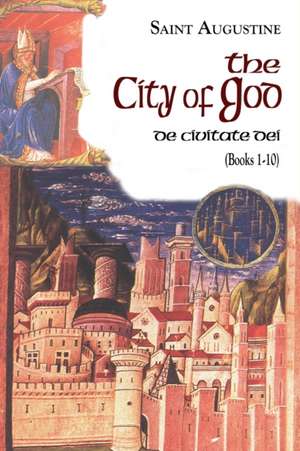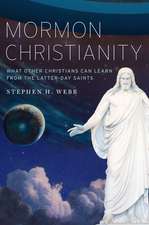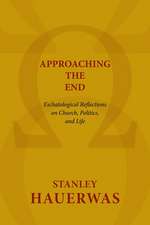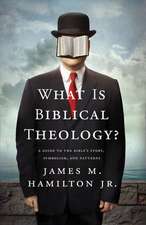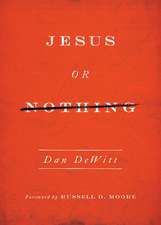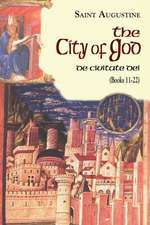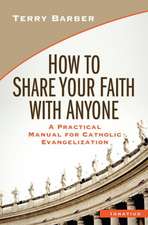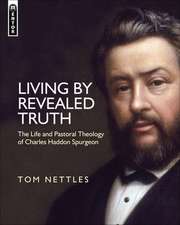The City of God, Books 1-10: Works of Saint Augustine (Numbered), cartea 06
Boniface Ramsey Autor Saint Augustine William Babcocken Limba Engleză Paperback – 14 sep 2012
Din seria Works of Saint Augustine (Numbered)
-
 Preț: 81.64 lei
Preț: 81.64 lei -
 Preț: 248.50 lei
Preț: 248.50 lei -
 Preț: 245.67 lei
Preț: 245.67 lei -
 Preț: 385.56 lei
Preț: 385.56 lei - 8%
 Preț: 503.11 lei
Preț: 503.11 lei -
 Preț: 342.05 lei
Preț: 342.05 lei -
 Preț: 339.61 lei
Preț: 339.61 lei
Preț: 228.51 lei
Nou
Puncte Express: 343
Preț estimativ în valută:
43.74€ • 45.07$ • 36.92£
43.74€ • 45.07$ • 36.92£
Carte disponibilă
Livrare economică 10-24 februarie
Preluare comenzi: 021 569.72.76
Specificații
ISBN-13: 9781565484559
ISBN-10: 156548455X
Pagini: 348
Dimensiuni: 155 x 229 x 13 mm
Greutate: 0.54 kg
Editura: New City Press
Seria Works of Saint Augustine (Numbered)
ISBN-10: 156548455X
Pagini: 348
Dimensiuni: 155 x 229 x 13 mm
Greutate: 0.54 kg
Editura: New City Press
Seria Works of Saint Augustine (Numbered)
Notă biografică
Aurelius Augustinus (354-430) was born and raised in Roman North Africa. His mother Monica provided a Catholic upbringing in his modest home town of Thagaste. However, Augustine preferred the liberties available to young men of his time and place. He also excelled at school. As a student at Carthage he joined the Manichean religious sect. After teaching rhetoric at Carthage and then Rome, he rose to become the official spokesperson for the Roman Emperor in Milan.
Amidst a crisis of faith and doubt, Augustine read the writings of Neo-Platonic philosophers and listened to the preaching of Bishop Ambrose of Milan. Resigning from imperial service, the 32 year old Augustine began an intensive study of scripture. He was baptized by Ambrose at the Easter Vigil in April of 387. A year later he returned to Africa and within several years was ordained to serve the diocese of Hippo (present day Annaba, Algeria), as priest and then bishop.
Charged with the pastoral care of his people, and confronted by the major doctrinal controversies in the early Church, Augustine employed his significant rhetorical skills and his genius for writing to compose some of the foundational texts of Christian theology in the Latin West. These include his Confessions, Teaching Christianity, The City of God, The Trinity, Expositions of the Psalms-to name just a few of his many books. We also have almost 300 of his letters to a wide variety of correspondents, and 400 of his sermons.
Augustine criticized the rejection of the Hebrew Scriptures by his former Manichean co-religionists; argued against the exclusionary ecclesiology of the Donatist Christians; confronted Arian Christianity with a deeply Catholic Christology; and, until the end of his life defended the supremacy of divine grace against what he understood to be the self-justification preached by the followers of the British monk Pelagius. His interpretation of original sin and its effects on humanity grew out of his personal and pastoral experience of the human pain and suffering wrought by ignorance and by disordered, destructive choices.
Throughout the Middle Ages, Augustine's writings remained influential and extended the influence of Platonic philosophy in Western Christendom. Even after the 13th century rise of Aristotelian philosophy in the writing of Thomas Aquinas, Augustinian thought persisted in various Medieval schools, and in the writings of Martin Luther, who had been a member of the Order of Saint Augustine.
Augustine's thought was influential at the Second Vatican Council. He remains a conversation partner for philosophers and religious thinkers of many persuasions. The latest, complete translations of his works in English are published by New City Press in partnership with The Augustinian Heritage Institute.
